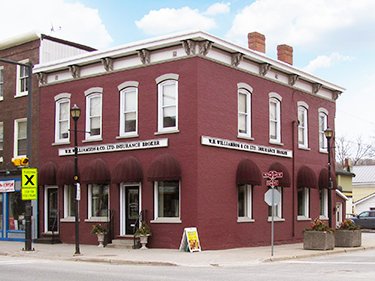Barbecue Season Is In Full Swing: Don’t Go Up In Flames
The joys of outdoor cooking also bring fire and associated risks. Here are some safety reminders for gas and propane barbecues to protect you and your property from harm or damage.
• Never operate a barbecue in an enclosed space, close to a structure, or near combustibles. Have a one metre radius around it free of obstructions.
• Keep your barbecue in tip top shape. Check for hose breakage, valve leaks, and other parts before securing the tank well and turning on the gas.
• When in use, never leave the grill unattended, and when finished turn the tank off before the burners so the remaining gas in the lines can burn off. This can help prevent a flash the next time the BBQ is in use.
• Make sure your fire extinguisher is easily accessible and in good working order.
Additional Tips
• Propane companies use an additive to create an unpleasant odour like rotten eggs to make a propane leak easier to detect, so you can shut off supply immediately, stop using the grill, and clear the area.
• Although the risk of carbon monoxide is low when using a BBQ outdoors, it is not entirely eliminated. Learn to recognize the signs of CO2 poisoning and take appropriate action.
• Store propane tanks in an upright position, in a spot where they are unlikely to be knocked or bumped to prevent any safety risk.
Factors Affecting the Cost of Home Insurance Premiums
According to the Director of Consumer and Industry Relations at the Insurance Bureau of Canada, (IBC), home insurance rates increased on average 8.4% from May 2021 to May 2022.
Economic pressures from ongoing global supply chain issues, historic inflation, and labour shortages are driving up insurers’ replacement costs at a time when the effects of climate change are also leading to an increase. Weather related events are becoming more frequent and more devastating. Also, if materials take longer to arrive, the size of a claim can increase exponentially with the insurance provider paying more for the policyholder’s Additional Living Expense (ALE).
As incidents of severe weather increase across the country, flooding is a peril for which more and more insurance providers are adjusting coverage, all the more so in low-lying areas. It has never been more important to have water damage protection where coverage is available.
In 2021 insurance claims resulting from severe weather events cost Canadian insurers $2.2 billion. The projected claims costs due to the severe wind and rainstorm which occurred this past May in Ontario and Quebec are about $875 million.
Bundling home and auto insurance policies, making sure all available discounts you qualify for are being applied, and increasing deductibles will help save premium.




 W.H. Williamson & Co. Limited
W.H. Williamson & Co. Limited




